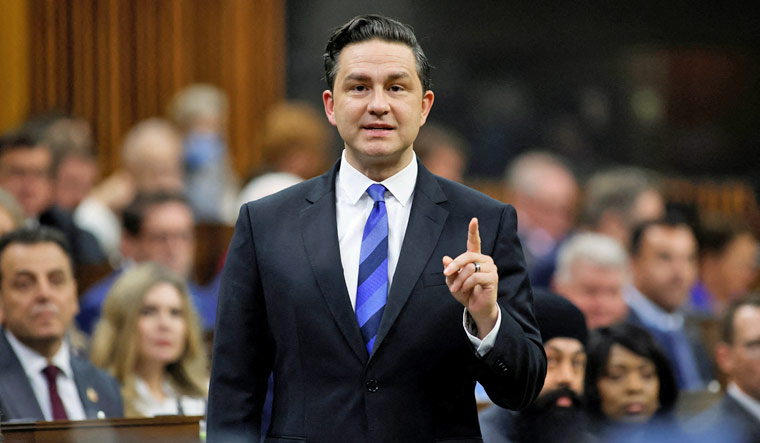The Canadian Parliament, in an embarrassing incident, cheered a 98-year-old veteran who reportedly fought for the Nazis during World War II, calling him a "Ukrainian Hero".
The incident took place on Friday when Ukraine's President Volodymyr Zelenskyy was visiting. Speaker Anthony Rota introduced Yaroslav Hunka as a war hero who fought for the First Ukrainian Division. He later apologised for the oversight calling the initiative "entirely my own." "I have subsequently become aware of more information which causes me to regret my decision," he said, adding his "deepest apologies" to Jewish communities.
Opposition leader Pierre Poilievre criticised Trudeau for personally honouring a Nazi veteran. Poilievre termed it an “appalling error in judgment” on the part of Trudeau, adding that the prime minister's personal protocol office is responsible for such state visits and vets all guests and programming for the same.
“It has come out today that Justin Trudeau personally met with and honoured a veteran of the 14th Waffen Grenadier Division of the SS (a Nazi division). Liberals then arranged for this Nazi veteran to be recognized on the floor of the House of Commons during the visit of the Ukrainian President,” he wrote on social media platform X.
Jason Cherniak, a Jewish lawyer, who was present in the Parliament said he also stood up and applauded Hunka assuming he was a “partisan who fought communist occupation after WWII.”
“Now I’ve learned he was a volunteer member of an SS unit, I feel sick to my stomach.”
Friends of Simon Wiesenthal Center, a non-profit organisation dedicated to Holocaust education and antisemitism programs wrote on X, "FSWC is appalled that Canada's Parliament gave a standing ovation to a Ukrainian veteran who served in a Nazi military unit during the Second World War implicated in the mass murder of Jews and others."
On Friday, September 22, a poll by Ipsos revealed that Trudeau's popularity was being affected amid the Khalistan controversy that stirred diplomatic tensions with India. Only 30 per cent of Canadians said that they would vote for Trudeau and about 40 per cent of Canadians said they want to see Poilievre as the prime minister.
The poll also showed that Poilievre was more popular than Trudeau. Elections are slated to take place in Canada in the autumn of 2025. In contrast, Trudeau's father, Pierre Trudeau, who was prime minister from 1968-1979 and again from 1980-1984, was revered among Canadians, CTV reported. His leadership style was known to be charismatic and his vision for a unified Canada won over both his constituents and critics.


